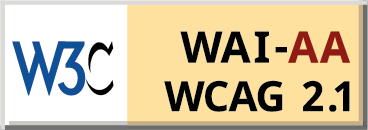Cometer errores gramaticales en inglés en un entorno profesional es más habitual de lo que parece, especialmente entre hablantes españoles. Y aunque muchas veces se entiende el mensaje, esos fallos pueden dar una imagen poco profesional o incluso cambiar el significado de lo que queremos decir.
En este artículo veremos los errores más frecuentes en la comunicación laboral, con ejemplos prácticos y consejos para evitarlos.
1. Present perfect vs past simple
❌ I have finished the report yesterday.
✅ I finished the report yesterday.
👉 El present perfect no se usa con expresiones de tiempo concretas como yesterday, last week, in 2020. Este error es muy común en informes y reuniones.
2. Would vs used to
❌ When I was a child, I would have a bike.
✅ When I was a child, I used to have a bike.
👉 Would se utiliza para acciones habituales en el pasado (We would meet every Friday), pero no para estados o posesiones.
3. Since vs for
❌ I’ve been working here since 5 years.
✅ I’ve been working here for 5 years.
👉 Since se usa para indicar el inicio de una acción (since 2018). For indica duración (for five years).
4. Question tags
❌ You are presenting tomorrow, isn’t it?
✅ You are presenting tomorrow, aren’t you?
👉 Los question tags son muy frecuentes en inglés oral y los errores se notan mucho en presentaciones y charlas informales.
5. El uso de will en condicionales
❌ If we will sign the contract, we will start immediately.
✅ If we sign the contract, we will start immediately.
👉 En la cláusula de condición (if-clause) nunca se usa will. Solo en la cláusula principal.
6. Less vs fewer
❌ There are less people in today’s meeting.
✅ There are fewer people in today’s meeting.
👉 Less se usa con incontables (less time, less money). Fewer con contables (fewer people, fewer opportunities).
7. Voz pasiva en tiempos compuestos
❌ The report has been wrote by the manager.
✅ The report has been written by the manager.
👉 El participio correcto es esencial en informes o presentaciones formales. Un error así puede hacer que tu mensaje suene poco profesional.
8. That vs which en cláusulas relativas
❌ Our policy, that was updated last year, focuses on flexibility.
✅ Our policy, which was updated last year, focuses on flexibility.
👉 That introduce información esencial (The strategy that works best is flexible). Which se usa para información adicional.
9. Estilo indirecto (reported speech)
❌ He said he is busy now.
✅ He said he was busy then.
👉 En inglés formal, los cambios de tiempo verbal en el reported speech son fundamentales para sonar natural.
10. Subjuntivo en condicionales formales
❌ If I was the manager, I would change the strategy.
✅ If I were the manager, I would change the strategy.
👉 Aunque was se acepta en la conversación informal, en entornos profesionales se prefiere el uso del subjuntivo (were).
📌 Ejemplo práctico: un extracto de reunión con errores
❌ If we will launch the product in June, we will earn more. Our manager said he is happy with the strategy, isn’t it?
✅ If we launch the product in June, we will earn more. Our manager said he was happy with the strategy, isn’t he?
📚 Recursos recomendados
Los errores gramaticales en inglés no desaparecen al alcanzar un nivel intermedio o avanzado; simplemente cambian y se vuelven más sutiles. Corregirlos marca la diferencia entre un profesional que “se hace entender” y uno que se comunica con precisión y confianza en cualquier entorno internacional.




